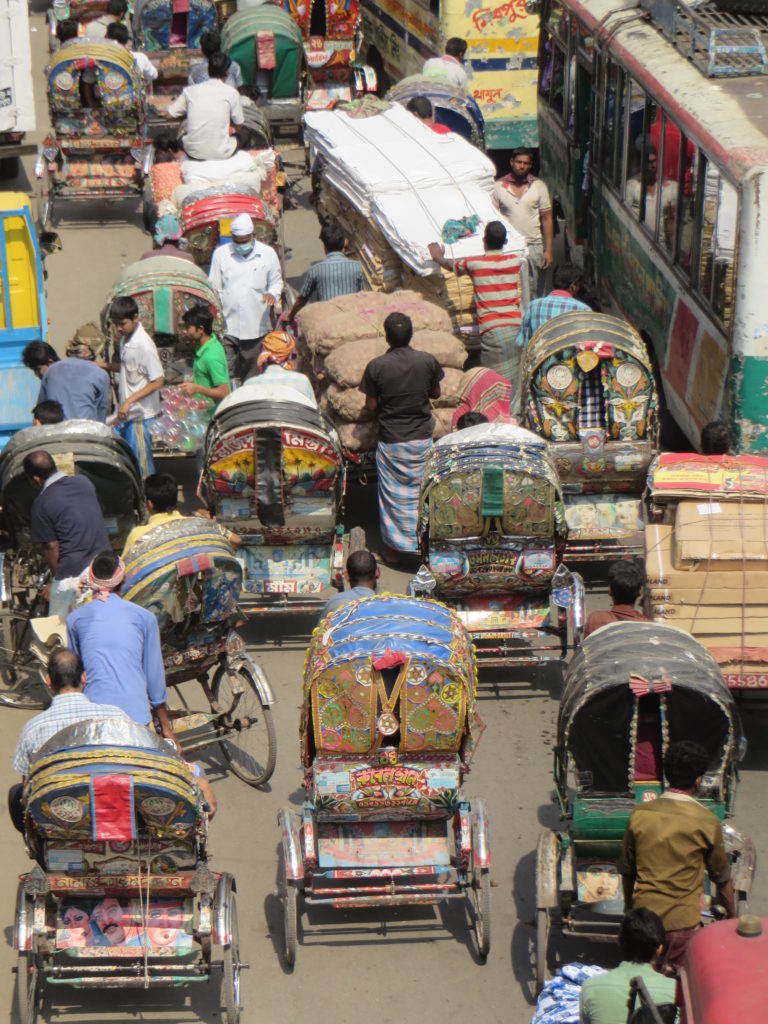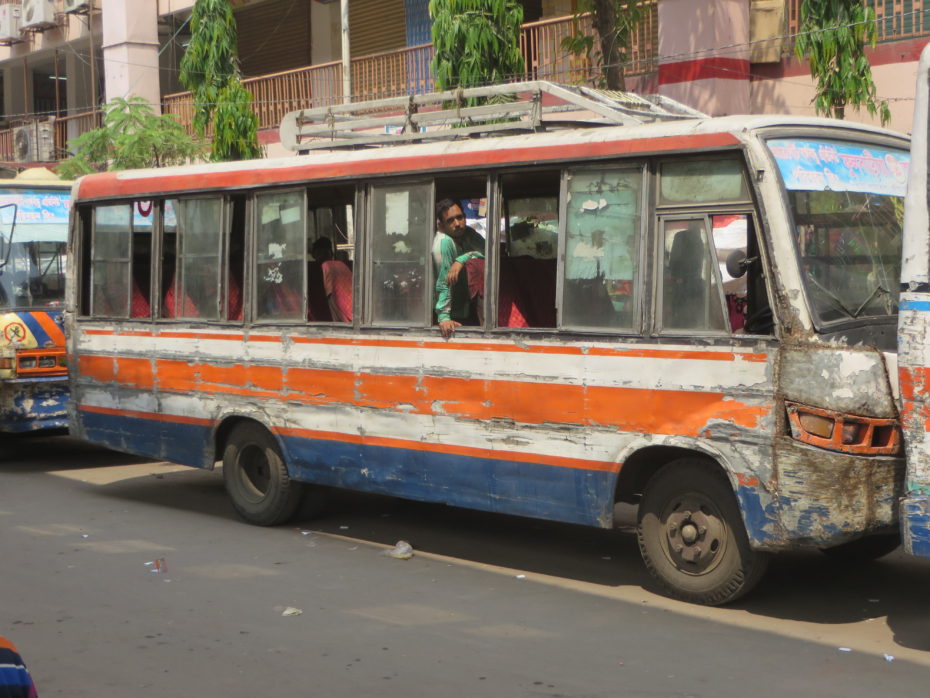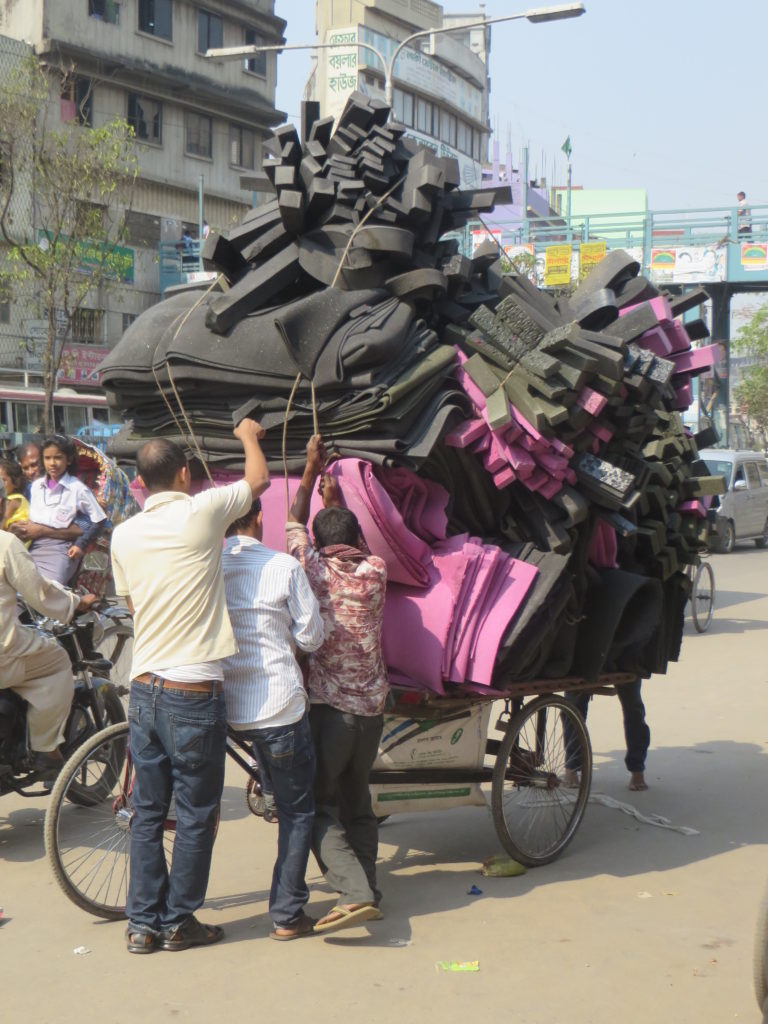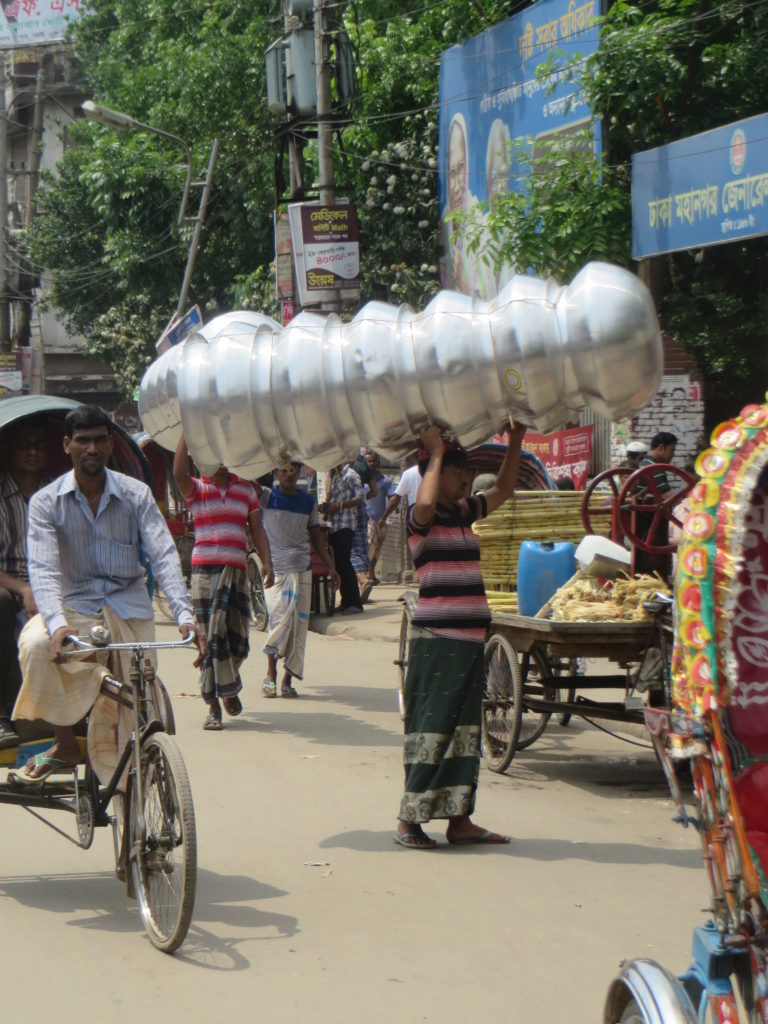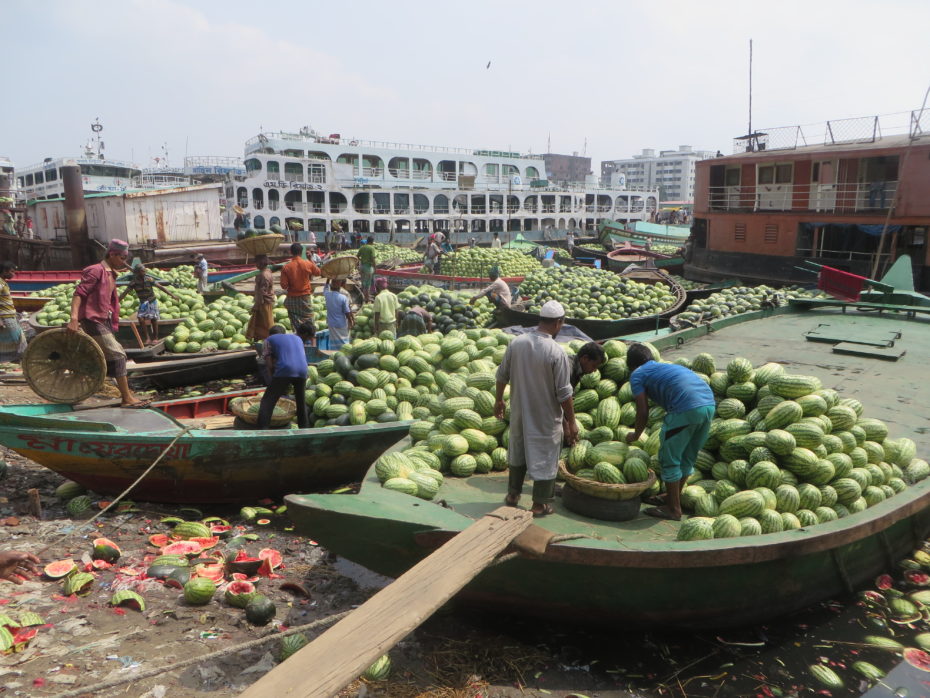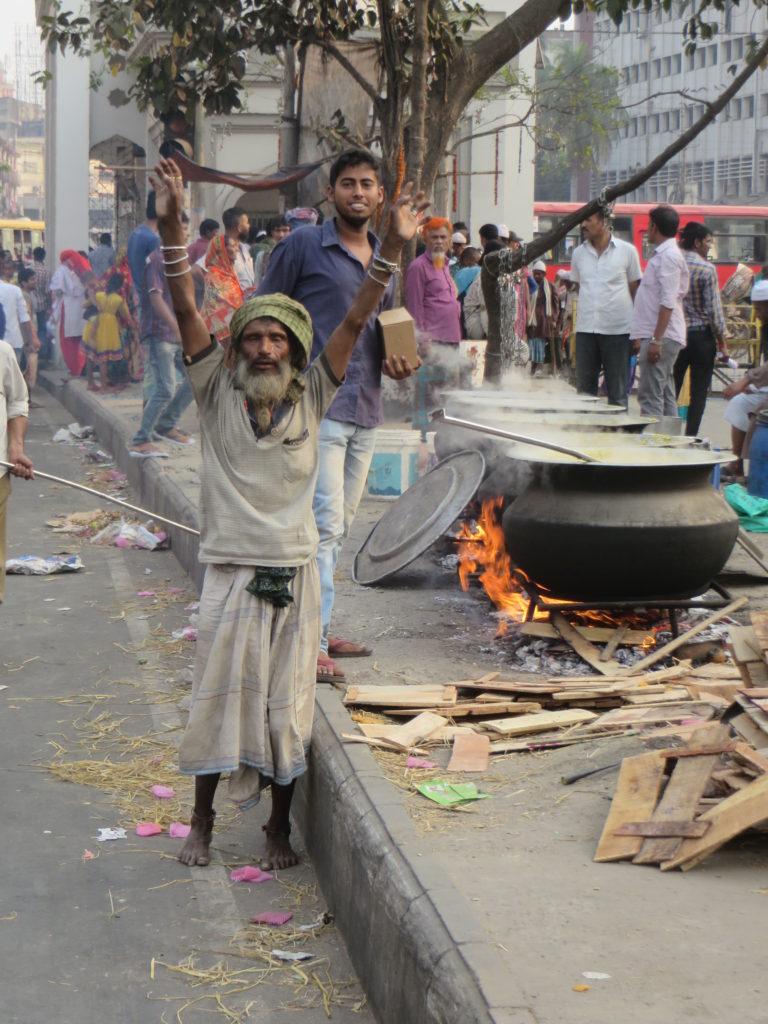I woke to the sound of roar, a roar without end. What was it? A protest? A soccer match? Having arrived in the early hours, when all was quiet in central Dhaka at the edge of the old city, I had only one option: to get out and explore. Besides, not being a botanist the lure of staying in and studying the abundant insect life crawling around my room didn’t seem quite so appealing.
I soon located the source of the roar, it was simply life itself, in an intense cacophony and confusion of its own particular blend. Like most noisy cities traffic is the most obvious culprit and here it is driven entirely by selfishness and the pointless rebuke of horns from vehicles wedged in and immobilized with thousands of equally inconsiderate drivers. A novel form of traffic management produces the thump of wood on metal as men with large sticks try to beat buses into submission. What this achieves beyond aggravating bus drivers is beyond anyone’s guess. The miracle is how rarely you do actually hear the crunch of automotive metal, so skilled are drivers at judging the narrowest of gaps.
Even the lowliest of transport forms, the rickshaw, contributes to the clamour, usually from the hard pedalling rider with shouts of abuse directed at similarly intransigent road users, though only a foolish pedestrian ignores the tinkle of their bells to avoid a collision – given the sheer muscle taxing work to regain momentum on these gearless contraptions they are reluctant to slow down once the opportunity of speed is achieved.
Loudspeakers, making up for what they lacked in fidelity with raw volume, blared with political or religious speeches, adverts and announcements. This was no network of speakers, as different streets blasted out different sets of competing emissions, a vocal soundclash for the public’s attention. Above this the call to prayer struggled to convey its beauty against the onslaught.
Among the seething masses it is men’s voices that compete for attention, for this is evidently a conservative Islamic society. The imbalance is exacerbated by the vast garment industry, which employs huge numbers of women away from the city centre. It is no exaggeration to say that 99% of the people on the street are men. Amongst the aural clutter of Bengali voices you hear its snippets of Persian, testimony to ancient migrations and empires; Arabic, not just from their shared religion but workers returned from job opportunities in the Middle East; also English, where colonial roots have grown family branches in Britain and the notion that the language denotes civilisation and education, such that English words crop up almost randomly in Bengali sentences to convey to the recipient that the speaker is educated and cultured.
Countering the rawness of shouts for attention are the birdsong calls by pairs of street salesmen. In repetitive, polyphonic harmony the men extol the virtues of their wares and keenness of their prices but the majority resort to the traditional bellowing to attract customers fighting their way through the morass of humanity.
As one of the rare foreigners you will be assailed with welcomes at every step and calls of, “what country”? It is this kindness that shields you from the mayhem long enough to let you appreciate what the city has to offer without screaming in frustration at the pulsating chaos around you.




